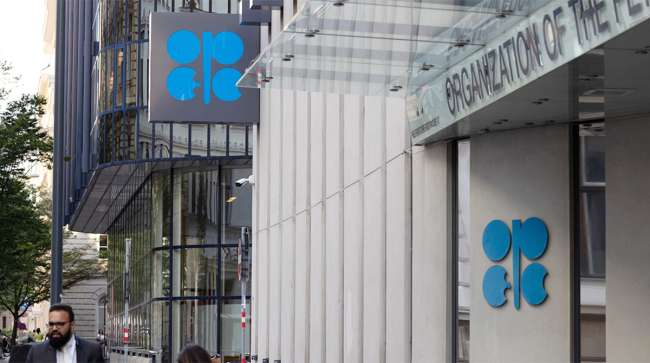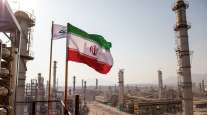OPEC Kept Oil Output Steady in July

[Stay on top of transportation news: Get TTNews in your inbox.]
OPEC kept oil production broadly steady in July while it cautiously monitors the impact of its latest cutbacks on global markets.
The Organization of Petroleum Exporting Countries produced an average of 26.99 million barrels a day in July, about 60,000 barrels a day less than in June, according to a Bloomberg survey. Venezuela and Iran drove the decline as demand faltered in their key customer, China.
The cartel and its allies held a monitoring meeting the week of July 29 as they prepare to gradually start reviving production — halted since 2022 in a bid to shore up prices — from the fourth quarter. While the committee, which is led by Saudi Arabia and Russia, chose to stick with the plan, it reiterated that it could “pause or reverse” the scheduled supply increases depending on market conditions.
Crude futures have faltered despite escalating geopolitical tensions in the Middle East, leaving international benchmark Brent below $80 a barrel.
Jeff Loftus of FMCSA joins TT’s Seth Clevenger to discuss the current outlook on ADAS technology and how it will affect the industry at large. Tune in above or by going to RoadSigns.ttnews.com.
While the recent price decline may offer relief for consumers and central banks still smarting from rampant inflation, it potentially spells pain for OPEC+ nations. Saudi Arabia has suffered a four-quarter growth slump, forcing Riyadh to cut investment in flagship economic projects championed by Crown Prince Mohammed bin Salman.
Riyadh kept output little changed at 9 million barrels a day in July, near its OPEC+ quota, according to the survey. Algeria and Kuwait are also abiding by their targets.
But Iraq and the United Arab Emirates haven’t yet implemented their share of the curbs, and continue to pump above their agreed limits, the survey indicated. Despite repeated pledges to comply better, Baghdad increased production marginally, by 30,000 barrels a day to 4.28 million barrels a day, the survey showed.
The country, along with fellow delinquent nations Russia and Kazakhstan, has promised to make additional cuts in compensation for overproducing. But there’s no sign of the trio delivering on this so far, and the cartel has a poor history of fulfilling these compensatory measures.
Venezuela and Iran, which are exempt from the current OPEC+ agreement to deliberately restrain supplies, suffered the largest declines in July.
Want more news? Listen to today's daily briefing above or go here for more info
Daily output from Caracas slipped by 60,000 barrels to 830,000 barrels, while Tehran retreated by 50,000 barrels to 3.26 million barrels. Both are heavily reliant on sales to China, which is expected to curb imports amid slowing economic growth. Political upheaval is also clouding the outlook for Venezuela following protests against President Nicolas Maduro’s disputed election victory.
In theory, OPEC+ can deliberate over whether to proceed with its fourth-quarter boost until early September, when cargo loading dates for the following month will likely be finalized. Traders are divided on whether the group will go ahead.
The coalition’s monitoring panel will convene online again on Oct. 2, and countries will assemble for a full ministerial meeting on Dec. 1.
Bloomberg’s survey is based on ship-tracking data, information from officials and estimates from consultants, including FGE, Kpler Ltd. and Rapidan Energy Group.
Written by Grant Smith, Julian Lee and Bill Lehane





